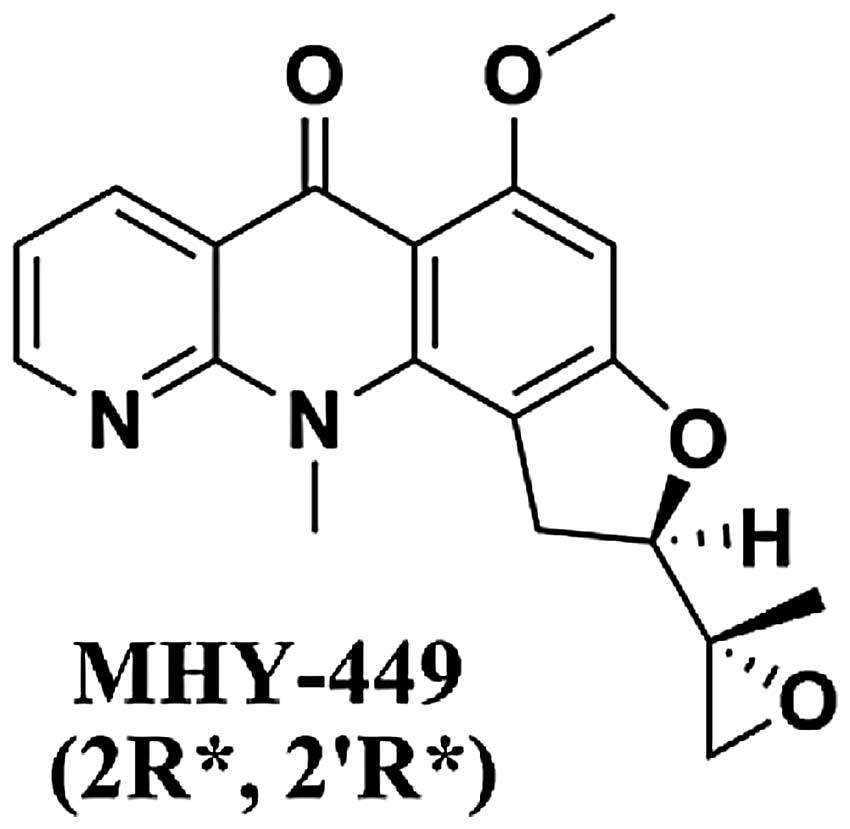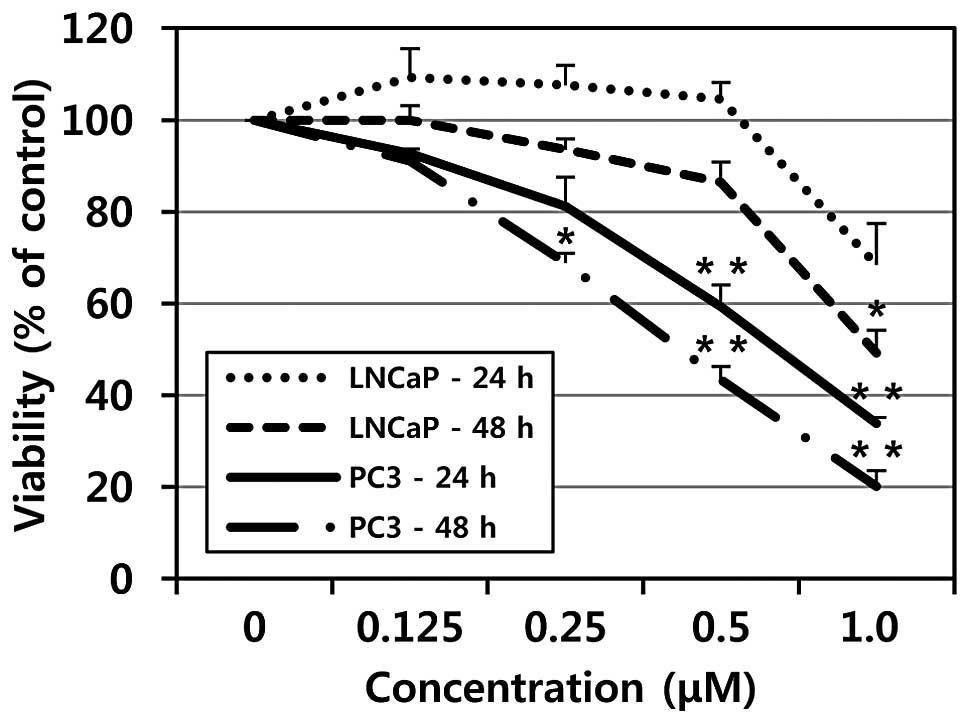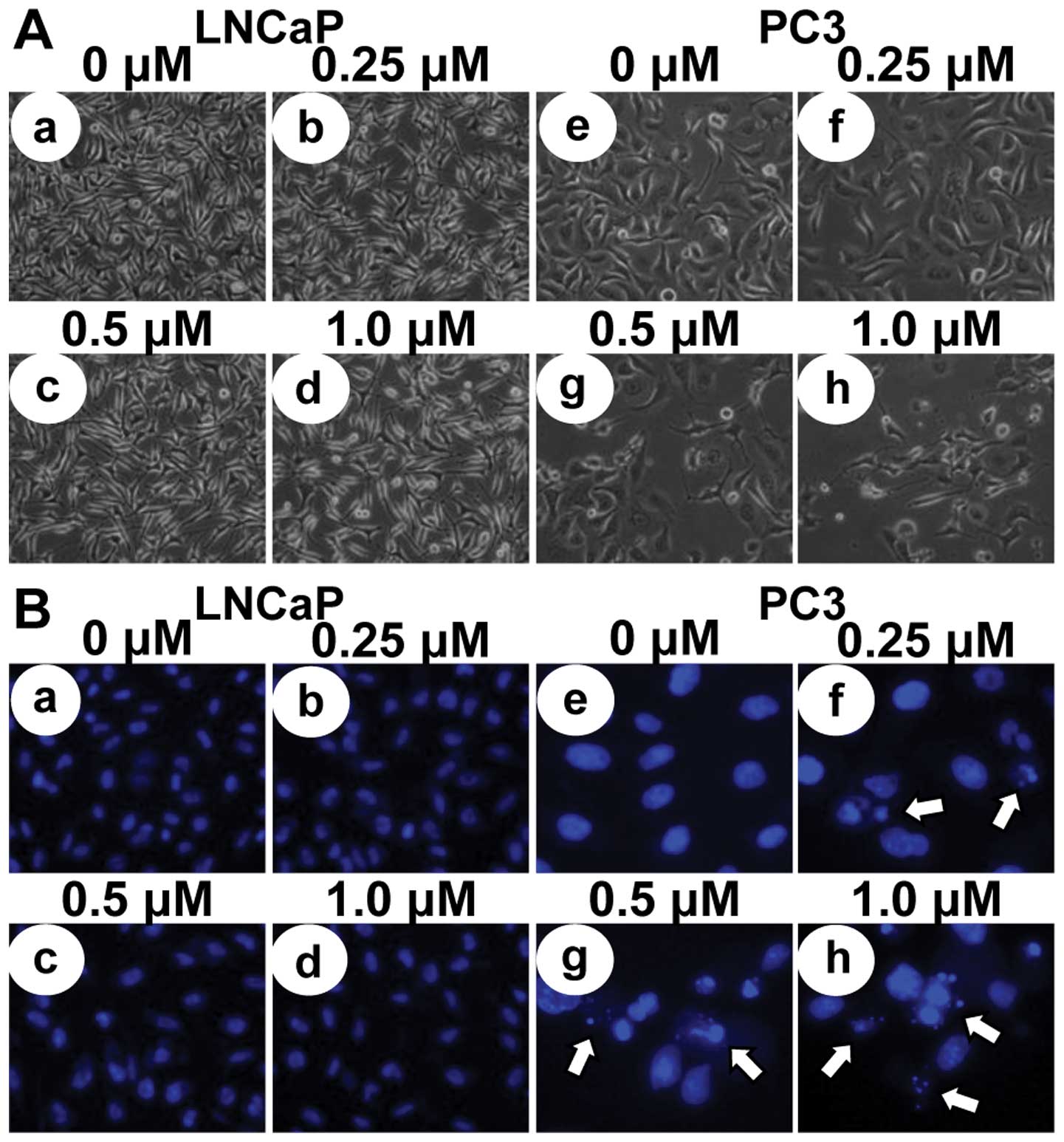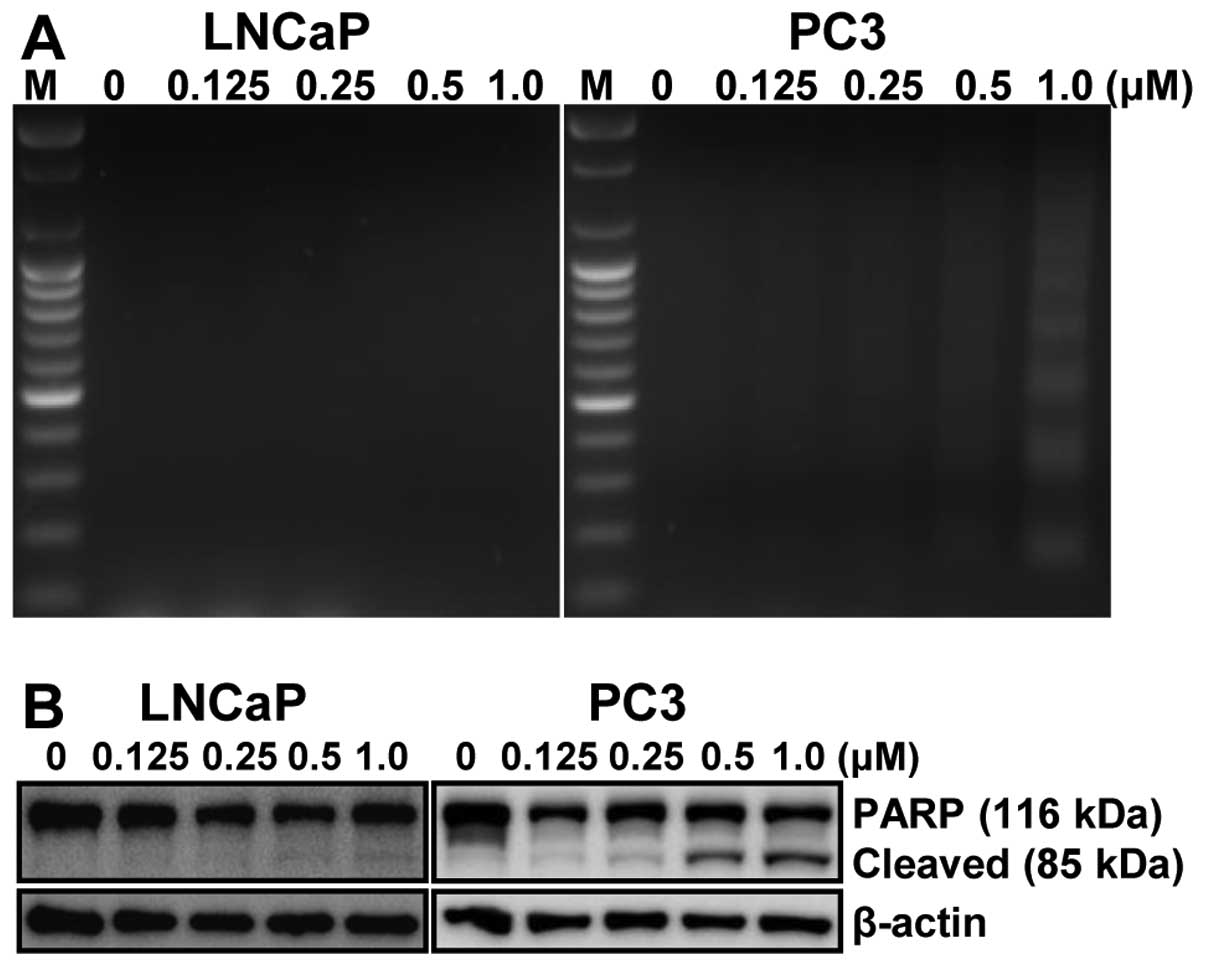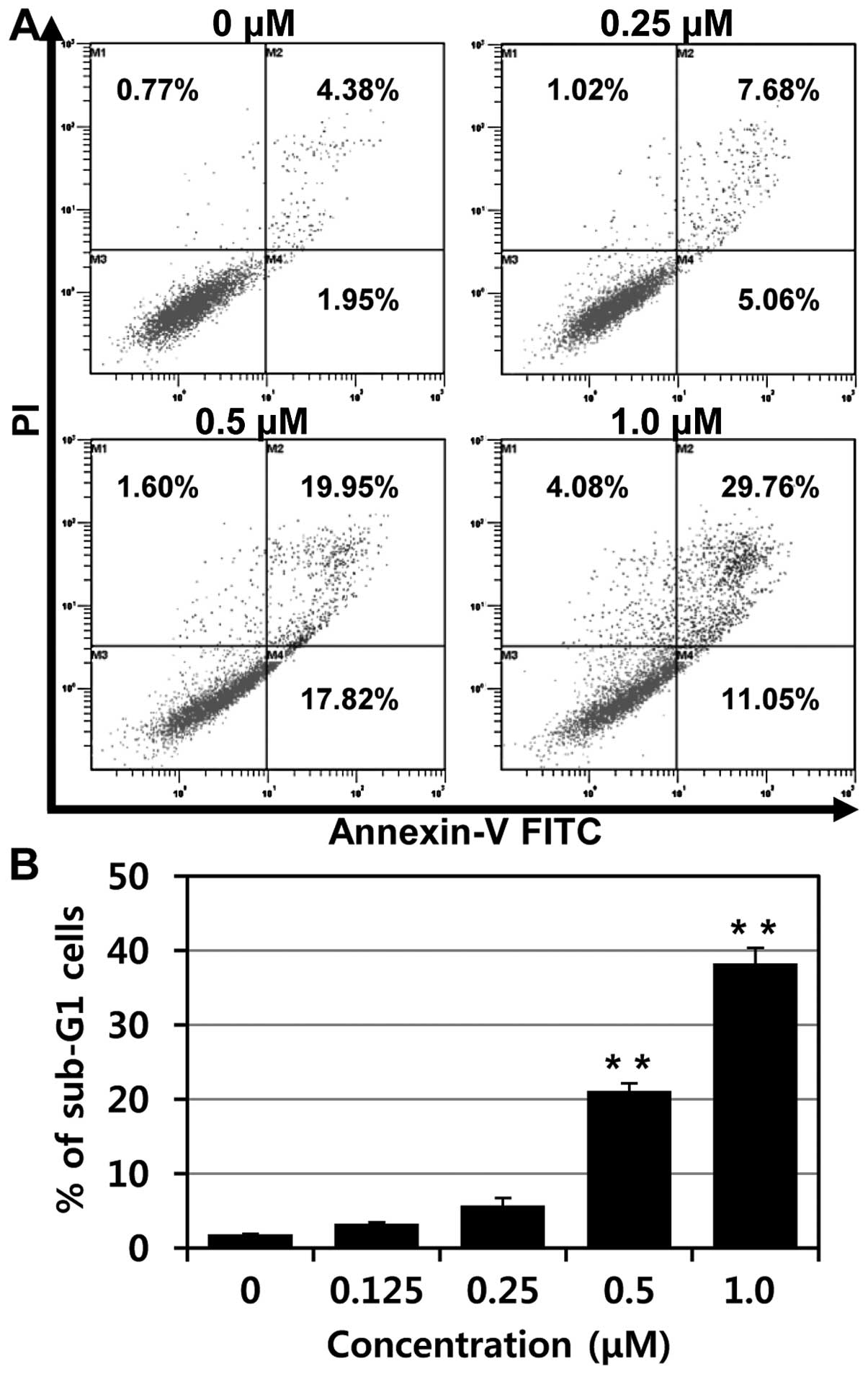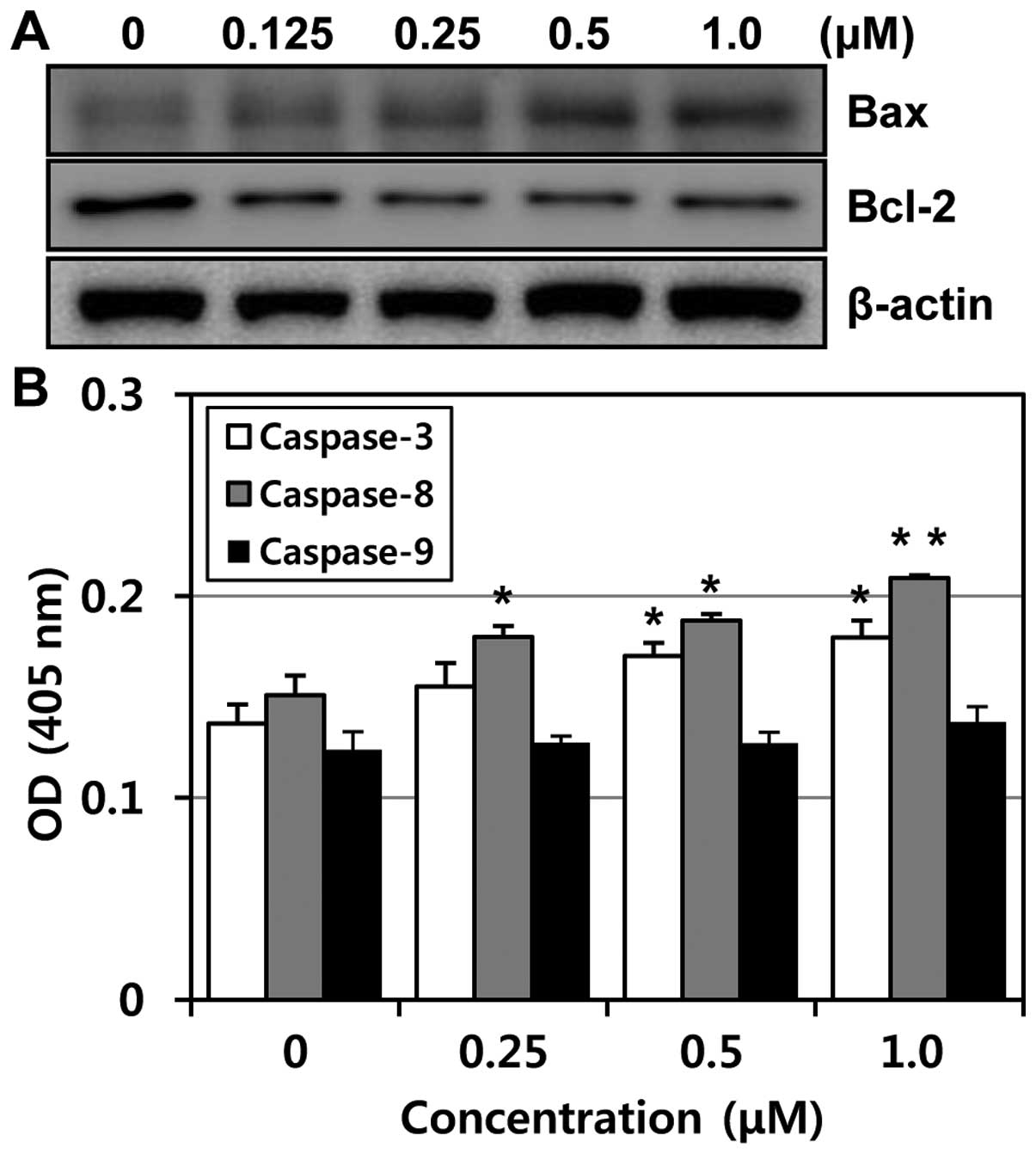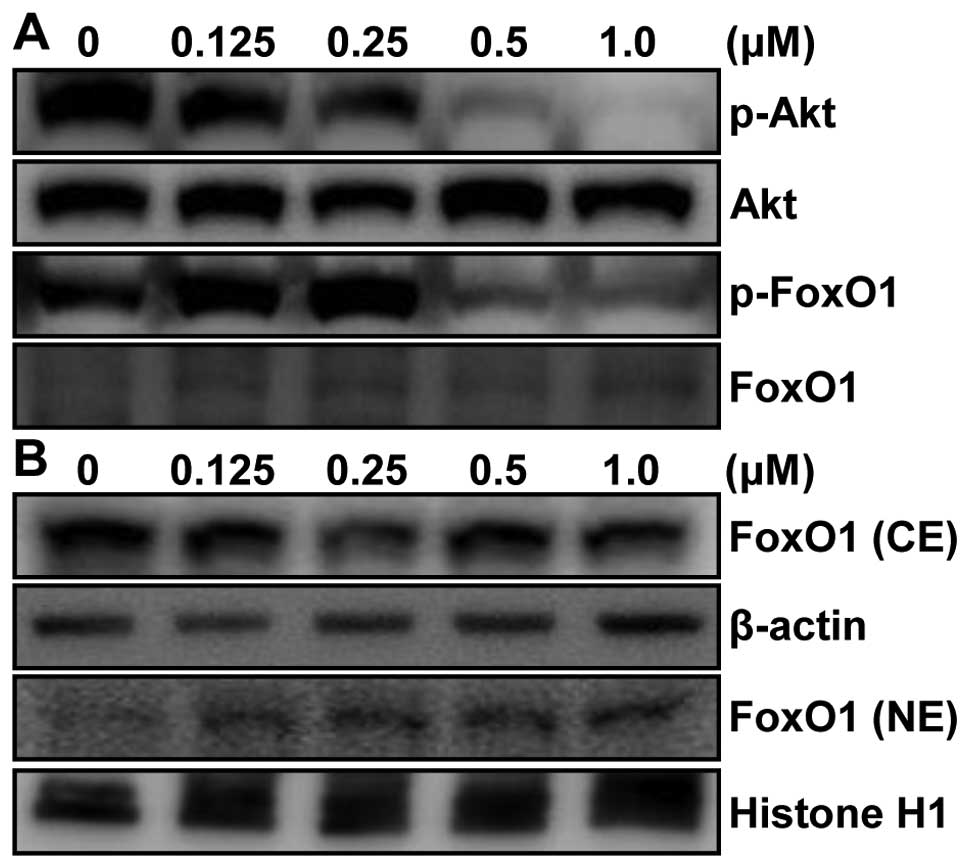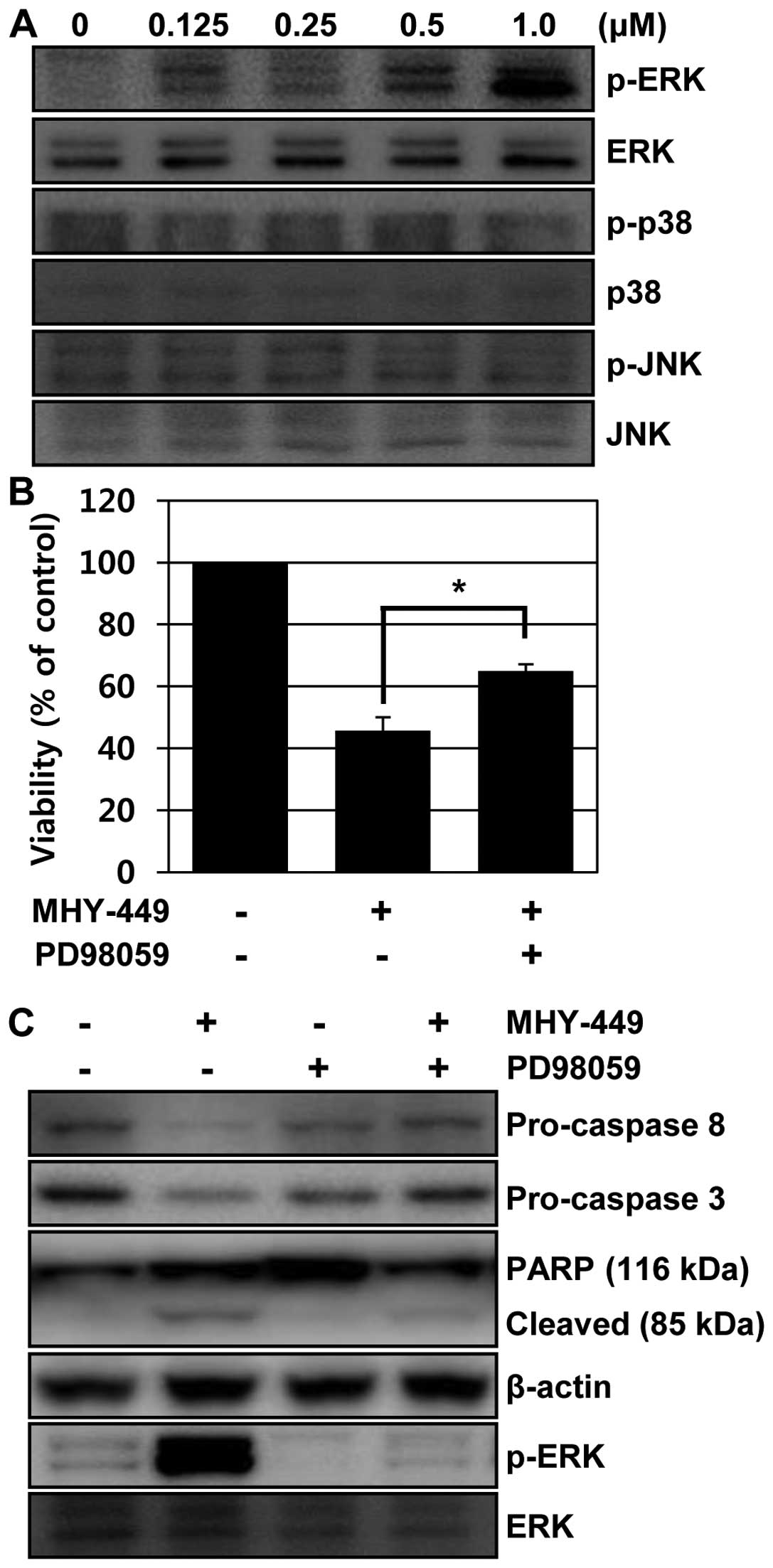Spandidos Publications style
Lee SH, Kang YJ, Sung B, Kim DH, Lim HS, Kim HR, Kim SJ, Yoon J, Moon HR, Chung HY, Chung HY, et al: MHY-449, a novel dihydrobenzofuro[4,5-b][1,8] naphthyridin-6-one derivative, induces apoptotic cell death through modulation of Akt/FoxO1 and ERK signaling in PC3 human prostate cancer cells. Int J Oncol 44: 905-911, 2014.
APA
Lee, S.H., Kang, Y.J., Sung, B., Kim, D.H., Lim, H.S., Kim, H.R. ... Kim, N.D. (2014). MHY-449, a novel dihydrobenzofuro[4,5-b][1,8] naphthyridin-6-one derivative, induces apoptotic cell death through modulation of Akt/FoxO1 and ERK signaling in PC3 human prostate cancer cells. International Journal of Oncology, 44, 905-911. https://doi.org/10.3892/ijo.2014.2257
MLA
Lee, S. H., Kang, Y. J., Sung, B., Kim, D. H., Lim, H. S., Kim, H. R., Kim, S. J., Yoon, J., Moon, H. R., Chung, H. Y., Kim, N. D."MHY-449, a novel dihydrobenzofuro[4,5-b][1,8] naphthyridin-6-one derivative, induces apoptotic cell death through modulation of Akt/FoxO1 and ERK signaling in PC3 human prostate cancer cells". International Journal of Oncology 44.3 (2014): 905-911.
Chicago
Lee, S. H., Kang, Y. J., Sung, B., Kim, D. H., Lim, H. S., Kim, H. R., Kim, S. J., Yoon, J., Moon, H. R., Chung, H. Y., Kim, N. D."MHY-449, a novel dihydrobenzofuro[4,5-b][1,8] naphthyridin-6-one derivative, induces apoptotic cell death through modulation of Akt/FoxO1 and ERK signaling in PC3 human prostate cancer cells". International Journal of Oncology 44, no. 3 (2014): 905-911. https://doi.org/10.3892/ijo.2014.2257















